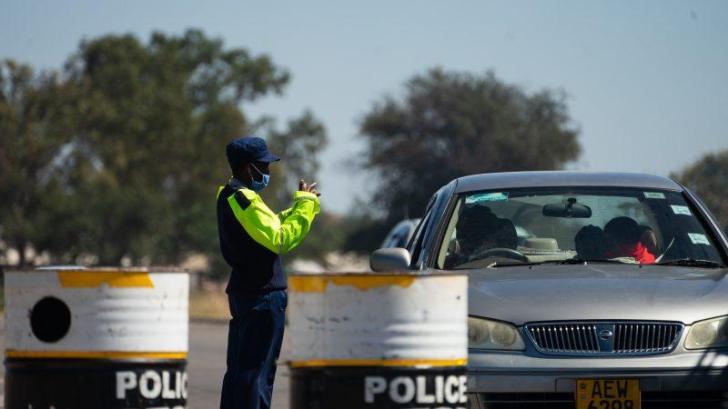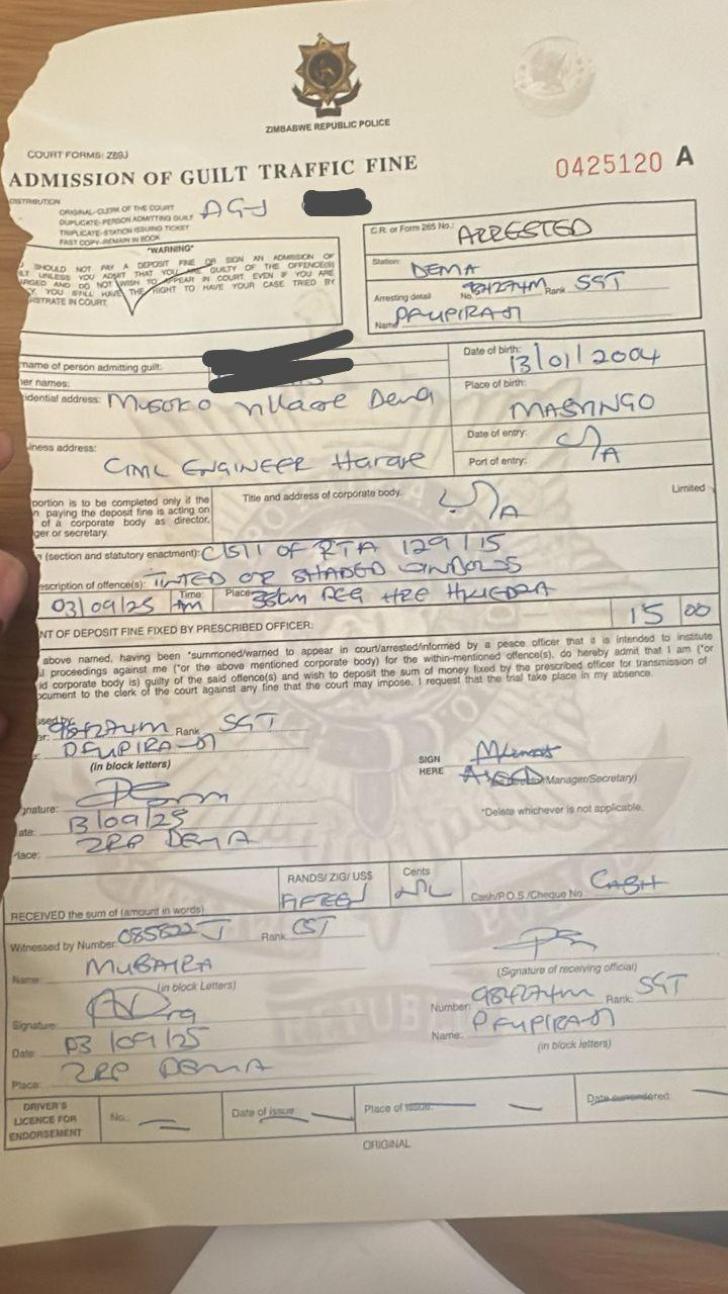News / National
Tinted windows confusion: Motorists fined despite government denial of ban
03 Sep 2025 at 08:27hrs |
0 Views

Zimbabwean motorists are caught in a fog of conflicting government statements over the legality of tinted vehicle windows - and this morning, some drivers found themselves on the receiving end of police fines despite official denials that a ban exists.
Last week, Home Affairs and Cultural Heritage Minister Kazembe Kazembe was quoted announcing a sweeping prohibition on tinted windows for all private and public vehicles, citing national security concerns and a rise in crimes allegedly committed in cars with obscured interiors. The directive, according to that statement, would require motorists to remove non-compliant tints or risk vehicle impoundment, with exemptions only for government VIPs, security services, and manufacturer-installed shading.
The announcement was framed as part of a broader crackdown on crime and drug abuse, with particular focus on mushikashika operators - informal transporters often linked by authorities to violent crime. It followed reports of serious incidents, including the abduction of a school pupil in a tinted vehicle.
However, within days, Presidential Spokesperson George Charamba publicly dismissed the reports, calling them "false and unauthorised". He stated there was "no basis in fact or law" for the ban and urged the public to ignore the earlier announcement attributed to another government official. Charamba's clarification appeared to put the matter to rest - at least on paper.
Yet, on the ground, the story is different.
This morning, several motorists in Harare reported being stopped at police checkpoints and issued tickets for tinted windows. One such ticket, seen by Bulawayo24.com, was an official Zimbabwe Republic Police "Admission of Guilt Traffic Fine" form citing "Fail to obey road traffic signs" - with the alleged offence linked to tinted glass. The fine was set at US$15.

The contradictory developments have left drivers bewildered.
"If the government says there's no ban, why are police still fining us?" asked one motorist who paid the penalty to avoid having his car impounded. "It feels like we're being punished for a law that doesn't exist."
Legal experts say the situation raises questions about communication between government ministries and law enforcement, as well as the legal standing of such fines if no statutory instrument has been gazetted.
For now, motorists face a dilemma: remove their tints to avoid roadside penalties, or keep them and risk fines - even as the official government position remains that no ban is in place.
Last week, Home Affairs and Cultural Heritage Minister Kazembe Kazembe was quoted announcing a sweeping prohibition on tinted windows for all private and public vehicles, citing national security concerns and a rise in crimes allegedly committed in cars with obscured interiors. The directive, according to that statement, would require motorists to remove non-compliant tints or risk vehicle impoundment, with exemptions only for government VIPs, security services, and manufacturer-installed shading.
The announcement was framed as part of a broader crackdown on crime and drug abuse, with particular focus on mushikashika operators - informal transporters often linked by authorities to violent crime. It followed reports of serious incidents, including the abduction of a school pupil in a tinted vehicle.
However, within days, Presidential Spokesperson George Charamba publicly dismissed the reports, calling them "false and unauthorised". He stated there was "no basis in fact or law" for the ban and urged the public to ignore the earlier announcement attributed to another government official. Charamba's clarification appeared to put the matter to rest - at least on paper.
Yet, on the ground, the story is different.
This morning, several motorists in Harare reported being stopped at police checkpoints and issued tickets for tinted windows. One such ticket, seen by Bulawayo24.com, was an official Zimbabwe Republic Police "Admission of Guilt Traffic Fine" form citing "Fail to obey road traffic signs" - with the alleged offence linked to tinted glass. The fine was set at US$15.

The contradictory developments have left drivers bewildered.
"If the government says there's no ban, why are police still fining us?" asked one motorist who paid the penalty to avoid having his car impounded. "It feels like we're being punished for a law that doesn't exist."
Legal experts say the situation raises questions about communication between government ministries and law enforcement, as well as the legal standing of such fines if no statutory instrument has been gazetted.
For now, motorists face a dilemma: remove their tints to avoid roadside penalties, or keep them and risk fines - even as the official government position remains that no ban is in place.
Source - Byo24News
Join the discussion
Loading comments…









































